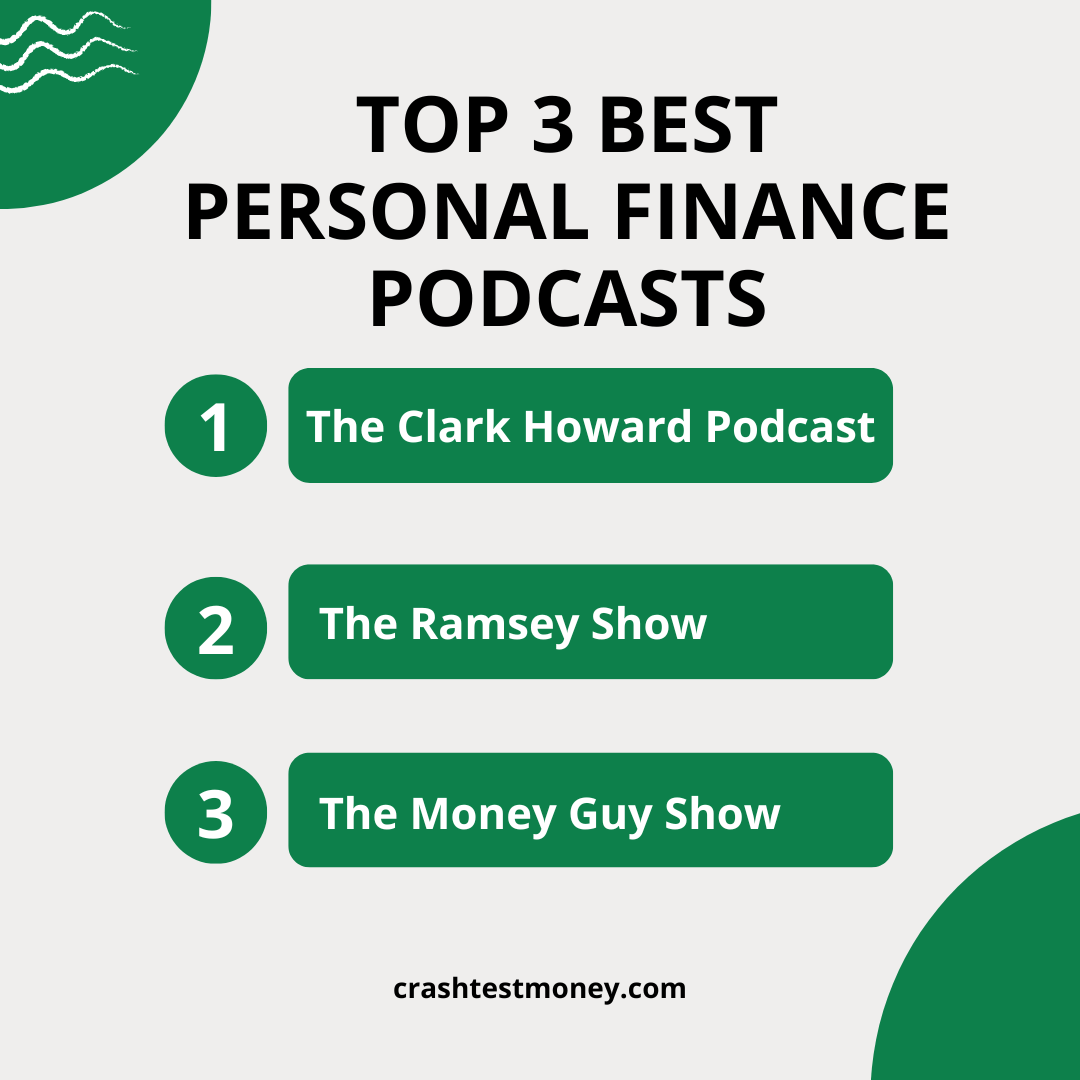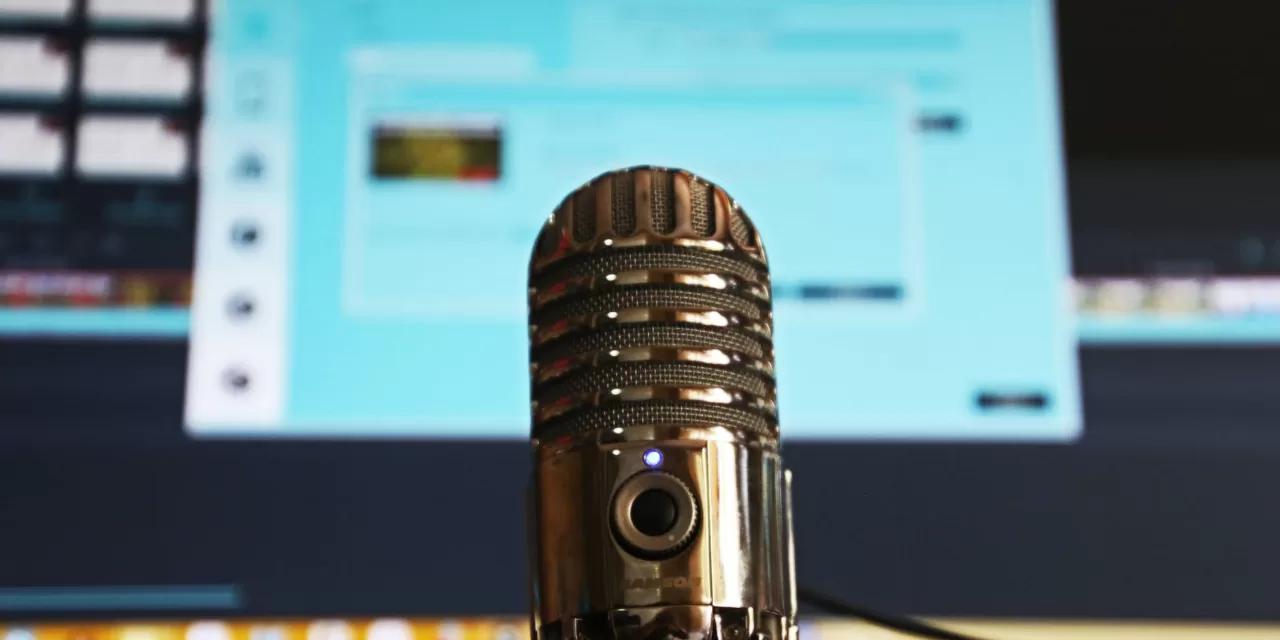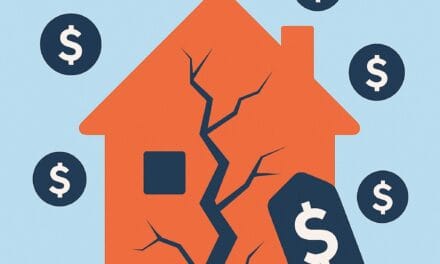Here are the best personal finance podcasts, but first, our disclosure.
Disclosure: This post may contain affiliate links, meaning we earn a commission on purchases made through those links at no extra cost to you. As an Amazon Associate, I earn from qualifying purchases.
Disclaimer: The content on this site is for informational and educational purposes only and does not constitute financial, investment, legal, tax, or any other professional advice and should not be used as a substitute for professional advice. For more details, read our full Disclaimer.
The Best Personal Finance Podcasts
Podcasts are a great way to learn about personal finance. To make things better, the advent of smartphones and smart speakers allows you to listen to whatever you want, whenever you want. I love listening to personal finance podcasts while working or preparing dinner. The only downside of podcasts is there are so many to choose from. How do you make a choice?
There are countless personal finance podcasts out there, and I have listened to quite a few. Unfortunately, some are more like advertisements, akin to a late-night infomercial. And then some podcasters seem more focused on perfecting their radio voice than providing valuable, honest financial advice. These are amusing to listen to, as they sound like a radio DJ from the 90s.
Worst of all are the podcasts, where the hosts love to hear themselves talk. These podcasts can last for an hour. If we’re lucky, they’ll spend 20 minutes discussing personal finance during that hour. I’m currently listening to one while writing this post that spent the first 15 minutes on childhood memories. It makes you want to yell, “Get to the point!”
Regardless of which one you choose, it’s important to remember not to take everything you hear on a podcast as the ultimate truth. It is always a good idea to research and carefully weigh the pros and cons before making any decisions. Trust me, taking the time to make well-informed decisions can pay off in the long run and save you from making costly mistakes!
Keeping the list to three
The list below is not an exhaustive list of the best personal finance podcasts but rather a curated selection of my top choices.
In creating this list of the best personal finance podcasts, I aim to offer you a comprehensive review of the podcasts I listen to daily. I want to give you an honest and thorough assessment of each podcast. To achieve this, I have narrowed the list to three of the most popular personal finance podcasts.
So, without further adieu, here are the podcasts that I consider the three best personal finance podcasts you can listen to.
1. The Clark Howard Podcast
If I were stranded on a desert island and could only bring one podcast, it would be “The Clark Howard Podcast.” In my opinion, it is the best personal finance podcast you can listen to.
Clark Howard provides practical advice and wisdom on various personal finance topics that we all face. He covers a broad range of money matters, from saving on travel and medical bills to investing and everything in between. The best part of Clark Howard’s podcast is that he accomplishes everything in about 30 minutes each weekday. There is no pointless chatter. He gets right to the point, making his podcast concise and informative.
The best thing about “The Clark Howard Podcast” is the passion Clark Howard has for helping people manage their finances. He is possibly the most sincere, empathetic, and optimistic personal finance podcaster. Clark Howard doesn’t let his ego get in the way of his mission to help people with their money. He doesn’t talk down to his audience or belittle their money choices. In fact, Clark Howard has gone so far as to create a consumer action center. This is where people can receive free advice on money and consumer-related matters.
Clark Howard will always have a special place in my heart. I moved to Atlanta in my early twenties and came across his radio show. That radio show had a positive impact on the way I handle money and invest. It wiped away the stigma of being “cheap,” and his investment advice shaped my future. Soon after finding the Clark Howard show, I opened up a Roth IRA with one of his favorite discount brokers, invested in a low-cost fund, and the rest is history.
Why it tops the list of the best personal finance podcasts
“The Clark Howard Podcast” is the best personal finance podcast because it focuses on saving money across a wide range of services and products. I also love that Clark Howard advocates for low-cost investing. This means opening an account with a reputable discount broker like Fidelity, Vanguard, or Schwab and investing in low-cost index funds or ETFs. High-cost brokerage companies and investments can eat away at your returns.
I also like that Clark Howard treats his listeners like adults. If you listen to some podcasts, you might get the impression there are no financially responsible, high-functioning adults in the world. For example, he doesn’t say you should never use credit cards as if everyone cannot control their spending. But he does preach the importance of paying them off in full every month.
Last but not least, I appreciate that “The Clark Howard Podcast” has a segment called “Clark Stinks.” This segment allows the listeners to express their opinions and point out where Clark Howard may have gone wrong. He addresses these comments every Friday and does not hesitate to admit his mistakes. It’s rare to find a personal finance podcast that encourages its audience to write in with their concerns and devotes an entire segment to them every week.
Clark Howard has not written a new book in some time. So, if you want to learn more about his investment approach, I recommend reading The Little Book of Common Sense Investing by John C. Bogle. This is one of the first books on investing I ever read. John C. Bogle was the founder of The Vanguard Group and one of the biggest proponents of low-cost index fund investing. Clark Howard often times refers to Vanguard as one of his “three favorite children,” along with Fidelity and Schwab.
2. The Ramsey Show
It is essential to always consider the risks associated with taking on debt. Nowadays, debt seems to be sold as a solution for achieving financial independence almost everywhere. This is where Dave Ramsey comes in as one of the best personal finance podcasts.
I know that Dave Ramsey is a polarizing figure. Not everyone agrees with his methods or approach. By having this podcast on the list, I am not advocating one way or the other for his plan. I put this at number two because “The Ramsey Show” emphasizes the destructive power of debt and is one of the most listened-to podcasts.
Dave Ramsey’s approach focuses on changing the behavior that led you into debt. Rather than focusing on interest rates, his debt snowball method prioritizes paying off smaller debts first to build momentum and alter behavior.
Some people will find Dave Ramsey’s approach extreme. He advocates for never having credit cards, let alone using them. You will hear the concept of not having a FICO score and manual underwriting for your mortgage. He also advocates taking on multiple jobs, selling anything and everything, and having no life for a couple of years to get out of debt. In doing so, I can see how his plan might be helpful for people struggling with mountains of debt.
In full disclosure, I listen to “The Ramsey Show” daily, but I have never gone through Dave Ramsey’s baby steps or did the debt snowball. This doesn’t mean I cannot benefit from his advice on debt or learn lessons from his callers’ mistakes. While I may not align with all of his recommendations (I still use a credit card), I have found his advice helpful. At present, I have no other debt besides my mortgage.
A word of caution
When it comes to investing, Dave Ramsey advocates for actively managed mutual funds. It has been hard for me to get my head around this. I do not understand how someone who rails against debt, big banks, and timeshares would promote such products. It makes no sense to me in this day and age of such low-cost options like index funds and ETFs.
I had second thoughts about listening to “The Ramsey Show” after one particular episode where a caller confronted him on his investment advice. I did not like Dave Ramsey’s response to the call, but in his defense, the caller started by saying Dave Ramsey was stupid and arrogant. How would any of us respond to that attack?
Second thoughts: Is this one of the best personal finance podcasts?
During that episode, the caller correctly pointed out the damage high fees will have on your returns due to the power of compounding. If all things were equal, actively managed mutual funds would substantially lag index funds after decades of investing due to their fees eating at your returns. It is called the “future value of money” and is a simple calculation on a spreadsheet or online using an investment calculator.
Try it for yourself using the online investment calculator. Play around with the calculator and see what a percentage or two can do to your returns over 20 or 30 years. It will be eye-opening.
It was painful to listen to Dave Ramsey defend his position. The worst part came when he doubled down on his argument. He responded to the caller by making it seem easy to pick actively managed mutual funds that beat the market. I could not believe what I heard. It was a tough pill to swallow.
Countless studies do not back up that statement. Everything I have seen indicates that 80% or more of actively managed mutual funds trail their index. My own experience with actively managed mutual funds has confirmed this, too.
In the end, I reminded myself that I listen to Dave Ramsey for his advice on debt, not investing. So, I am still an active listener of “The Ramsey Show” and think it is one of the best personal finance podcasts on debt management.
The lesson here is to be careful when taking investment advice from Dave Ramsey, a blog (like this one), your neighbor, or anyone else. What works for one person may not work for you or vice versa.
One More Word of Caution
Dave Ramsey has a comprehensive approach to personal finance, which he breaks down into seven steps. The sixth step involves paying off your mortgage early, which is often controversial. Financial professionals usually advise against this approach purely based on math. They argue that investing the extra money is better than putting it towards your mortgage. However, there is also an emotional component to money and debt.
Dave Ramsey argues the emotional weight lifted from paying off your mortgage is worth more than those investments. He will also say that paying off your home is the fastest way to becoming a millionaire. Knowing this before listening to the show is good since paying off your mortgage early is a hot-button topic.
I know I have spent much time on “The Ramsey Show.” This is because not everyone will agree with his approach. As such, I needed to inform you of the parts of his advice that frustrate some people before you listen to his show. Remember, it is ultimately your decision on how to act upon the advice you hear.
Whether you agree with Davey Ramsey or not, I believe it is important to challenge your views. It never hurts to get a different perspective. Besides, It is good to have a constant reminder of the negative impacts of debt, and Dave Ramsey is good at beating home that point.
If you want to learn more about Dave Ramsey’s approach and baby steps, check out his book The Total Money Makeover. It is one of the most popular personal finance books.
It is a quick read. Then, you can decide for yourself if some, all, or none of Dave Ramsey’s approach is right for you.
3. The Money Guy Show
Up next is “The Money Guy Show”. This is one of the best personal finance podcasts because it brings a well-rounded approach. It also helps that you get advice from Brian and Bo, who have a lot of letters after their names, as in CPA, CFA, and CFP. So, you are hearing opinions on personal finance from actual personal finance professionals.
I appreciate their approach as it highlights the importance of personal finance and money as tools to reach your unique goals. They provide the necessary figures for different financial decisions but emphasize that it all comes down to your goals and what matters most to you.
So, if we return to the hot-button topic of paying off your mortgage early. “The Money Guy Show” will tell you that if you are in your 20s and 30s, the numbers say not to put extra money toward your mortgage. Investing those dollars during that time will give you the most bang for your buck. However, they will stress that it all depends on what you value most. Is it being debt-free, including your mortgage, or maximizing your money at retirement?
They focus on the idea that it is more important to front-load your retirement during your 20s and 30s. These are the years that will deliver you the most dollars in return at retirement. Brian likes to stress that each dollar you invest in your 20s has the potential to be $88 at retirement. From there, your dollar return at retirement drops substantially with each passing decade.
This is why I consider “The Money Guy Show” one of the best personal finance podcasts. They emphasize the need to invest early, the power of compounding, and your financial goals.
Financial Order of Operations
Like Dave Ramsey, Brian and Bo have their own set of steps called the “Financial Order of Operations.” The concept of an “order of operations” is not unique. Dave Ramsey’s baby steps would be considered a financial order of operation. What is unique is how the steps are arranged along with their action items.
“The Money Guy Show” plan starts with saving enough to cover your insurance deductibles. Then, their second step moves straight to investing. Brian and Bo want people to invest as soon as possible to maximize their time in the market before paying off high-interest debt. They do not advocate going right to saving 15% but want people to invest up to an employer match. Paying off high-interest debt does not start until after this step.
Dave Ramsey’s approach advocates forgoing investing until all debts are paid off from smallest to largest (excluding the mortgage). Instead, “The Money Guy Show” focuses on paying off high-interest debt first, like your credit cards. Then, the following six steps involve growing your savings until you have maxed out all your retirement accounts and have saved for future expenses. Only then does their plan say it is okay to shift to paying off low-interest debt, like your mortgage.
I like this approach to personal finance, which is why I consider “The Money Guy Show” one of the best personal finance podcasts.
Book Recommendation
“The Money Guy Show” hosts Bo and Brian have not published any books on personal finance at the time of this writing. So, I searched their website for books they recommend to provide insight into their personal finance approach. I came across a list with The Millionaire Next Door: The Surprising Secrets of America’s Rich as the first book.
This is a great book. If you’re short on time, you can quickly read the first few sections to get the main points. However, keep in mind that it was written in 1996, so some of the numbers mentioned are outdated due to inflation. As you progress through the book, remember that $1 in 1996 is worth around $2 today.
The Best Personal Finance Podcasts Roundup

With so many personal finance podcasts available, deciding on one to listen to can be daunting. However, my list of the best personal finance podcasts can be a great starting point. Even if you don’t always agree with the advice and opinions offered by these podcasts, I believe you’ll find value in all three of them.
Regardless of which podcast you choose, it’s essential to remember that not everything you hear on a podcast is an absolute truth. It is always a good idea to question the opinions you hear and to research them further. You can learn a lot from these podcasts, but not all of their views will apply to you. Always remember that personal finance is just that, personal. It is about you and your goals.
Since personal finance is a highly individualized topic, what works for one person may not work for another. It all comes down to your financial goals and what you want to achieve with your money. So, I may consider these the best personal finance podcasts, but you may not after listening to them. There is nothing wrong with that.
I am always looking for new podcasts on personal finance and would love to hear which ones you consider the best. So, leave a comment below or send us a message. In the meantime, I will continue to explore podcasts. So, check back often for more in-depth reviews of the best personal finance podcasts.
Until then, good luck on your money journey.







